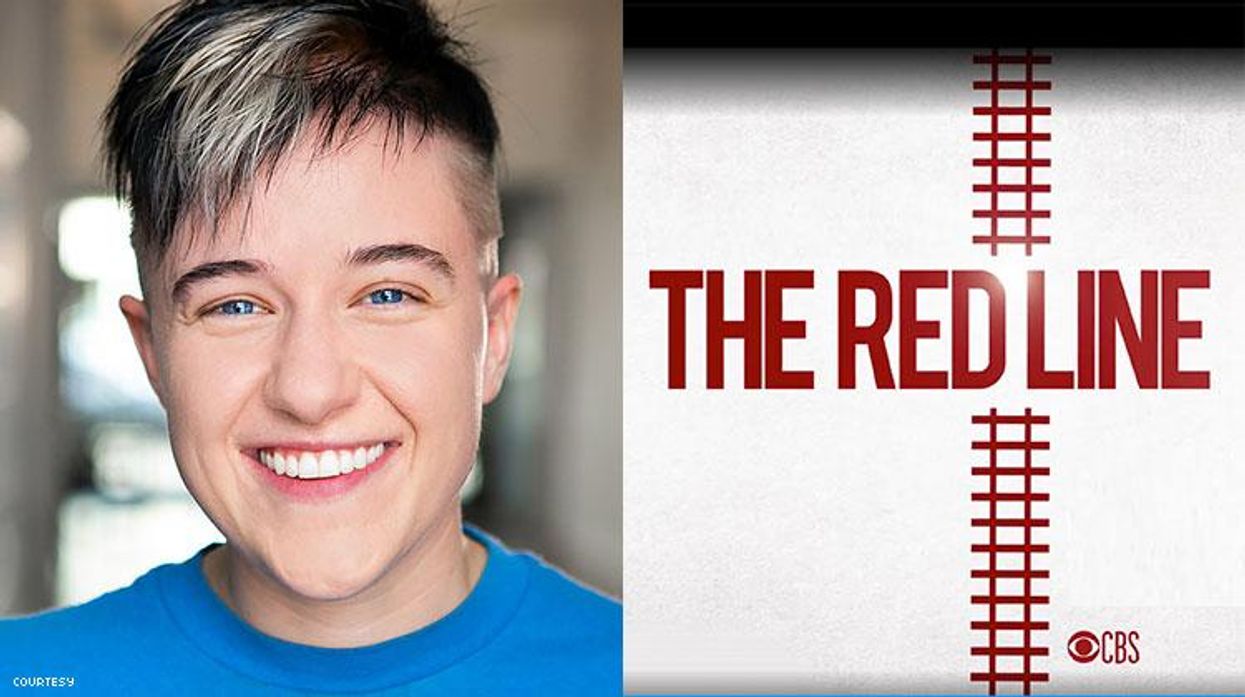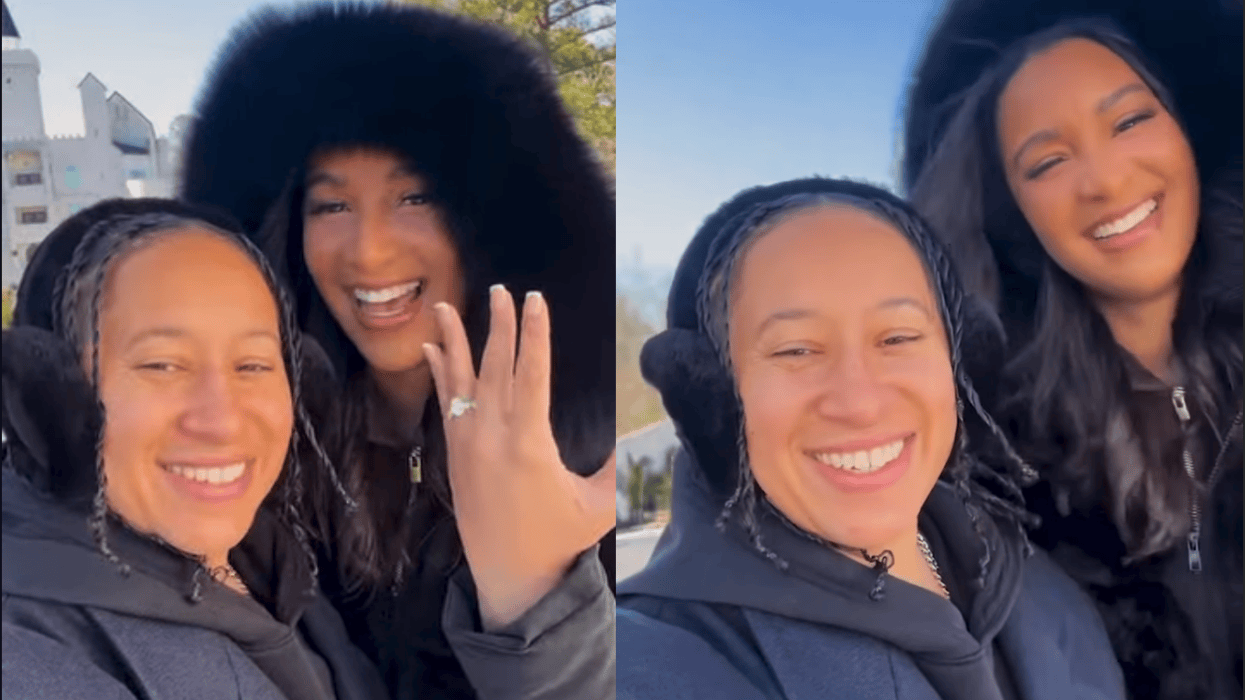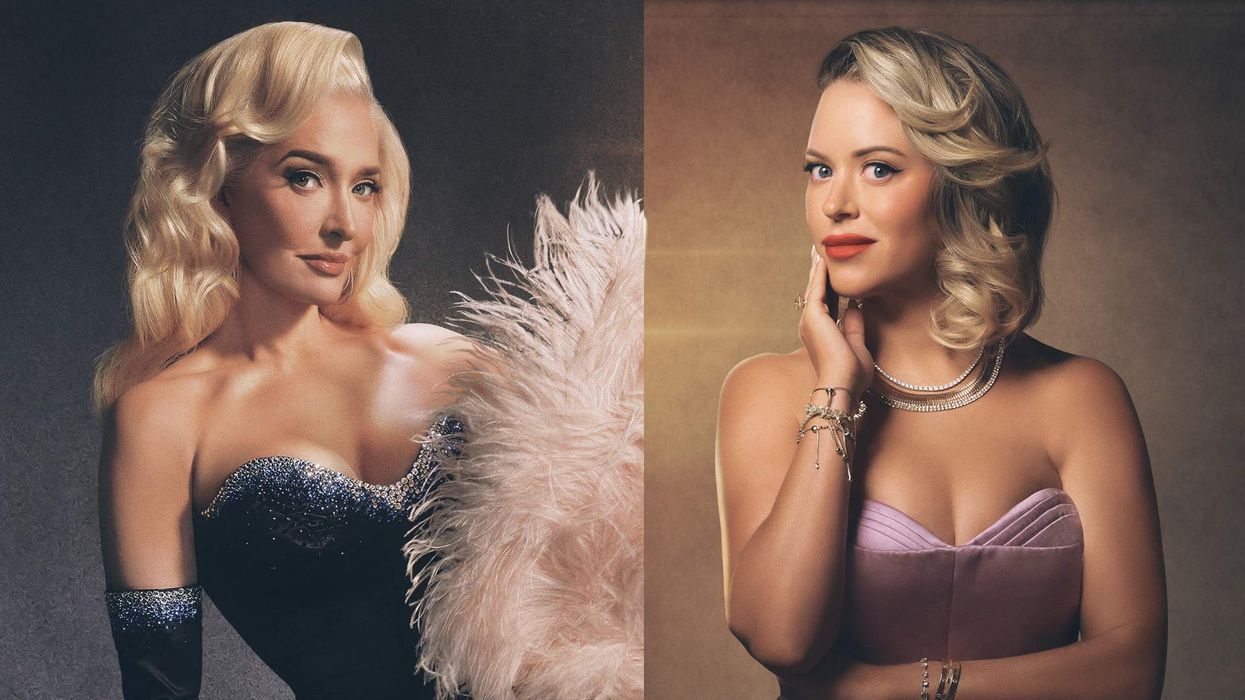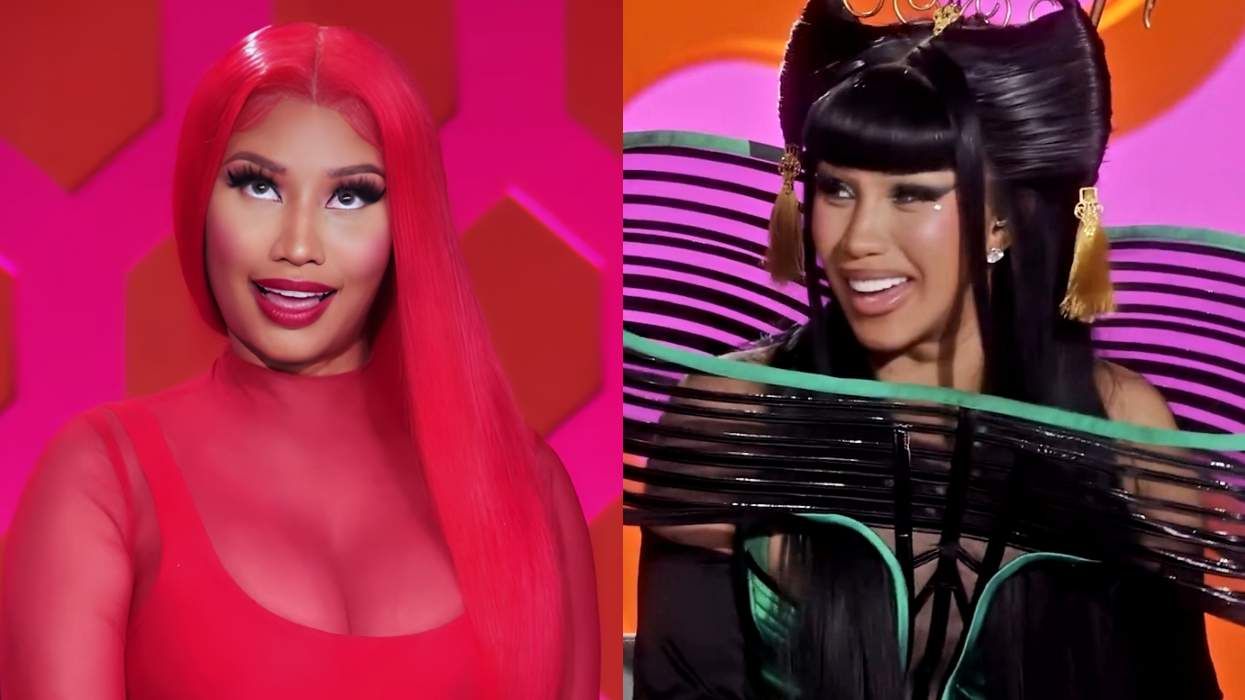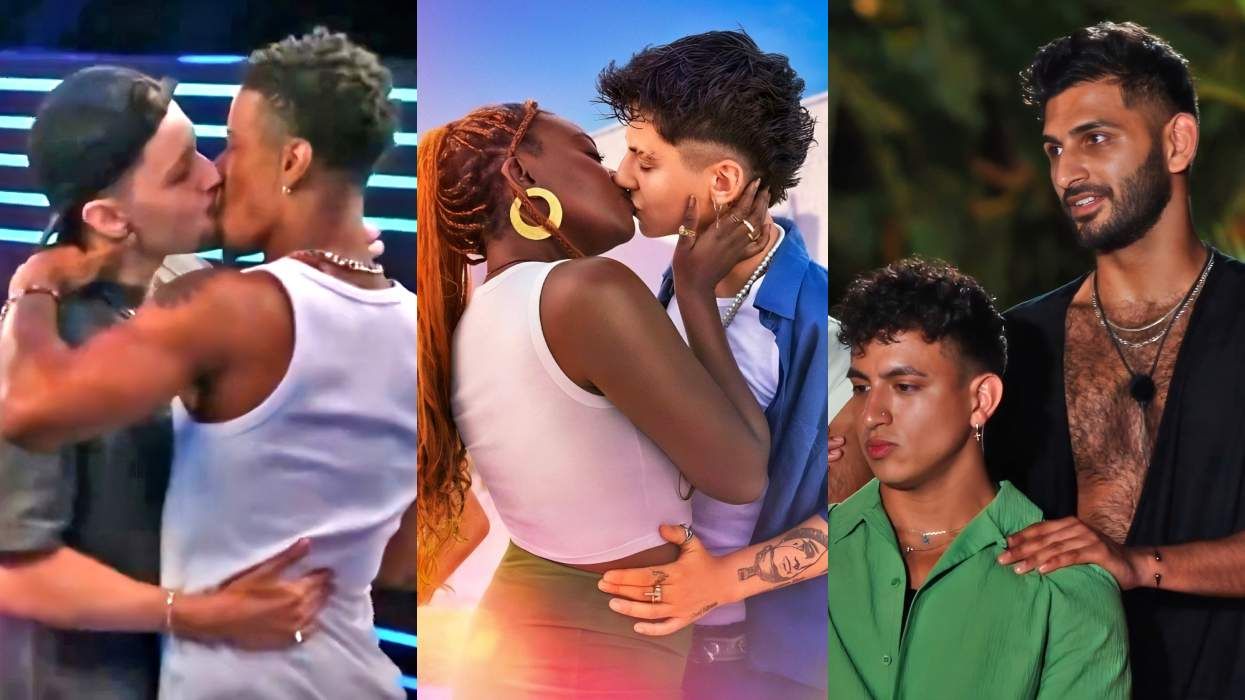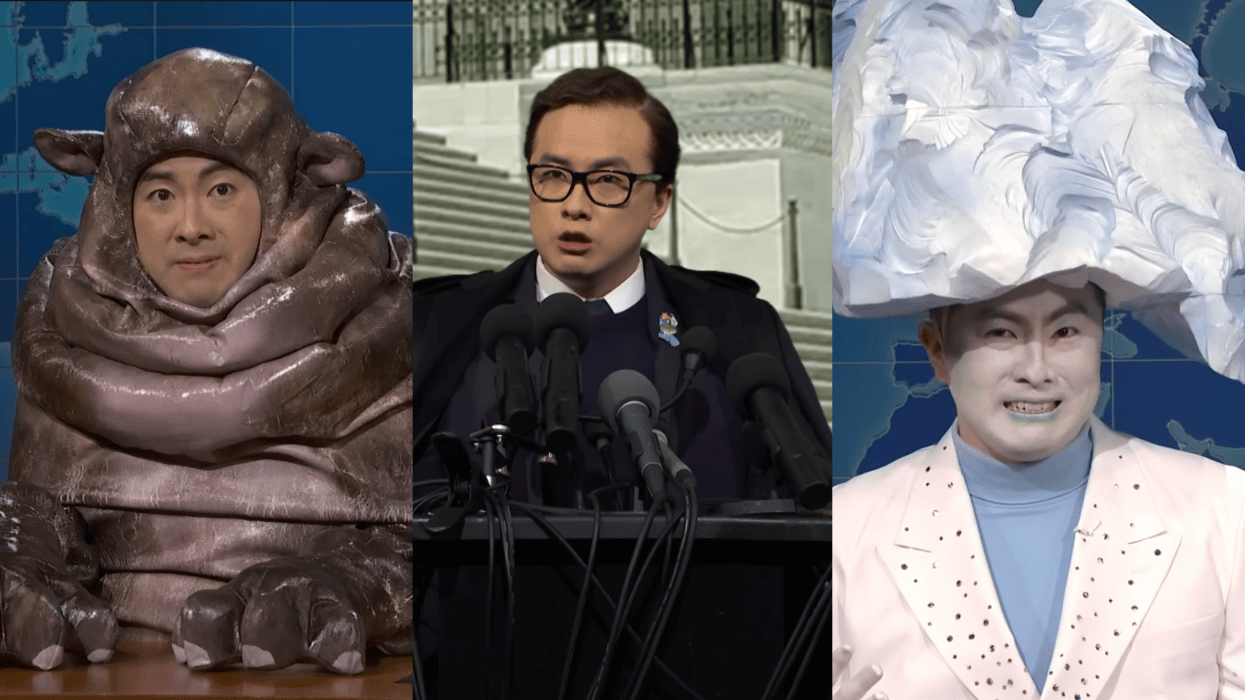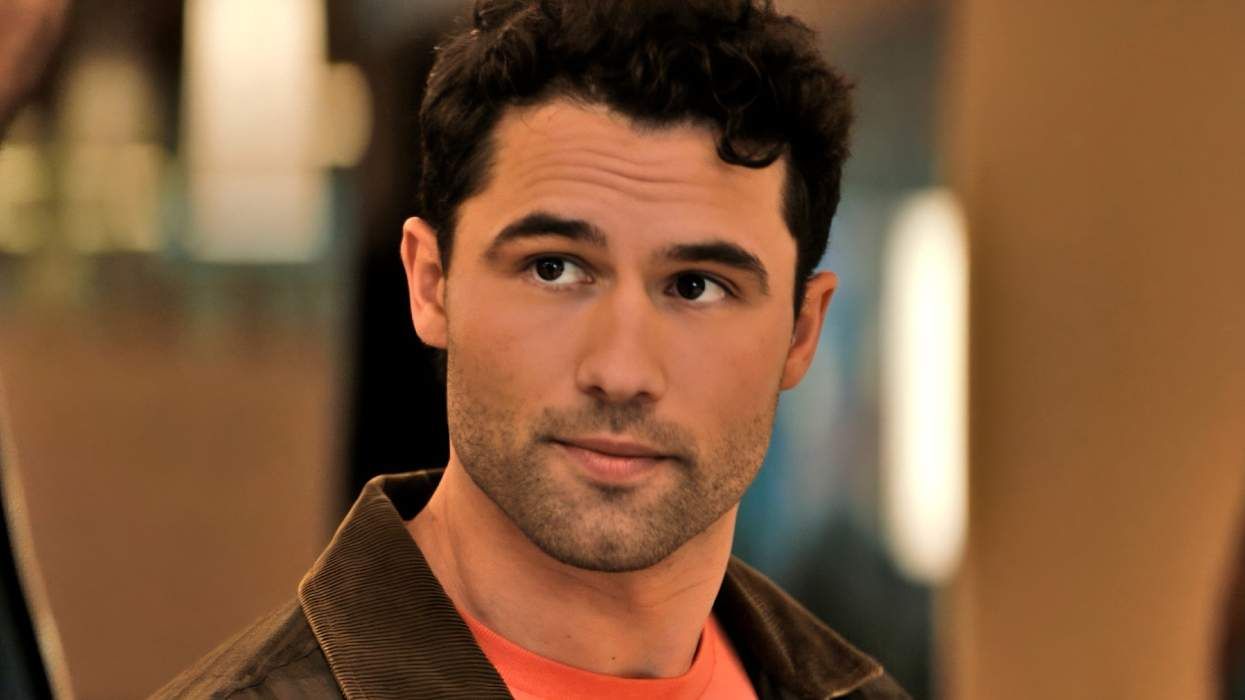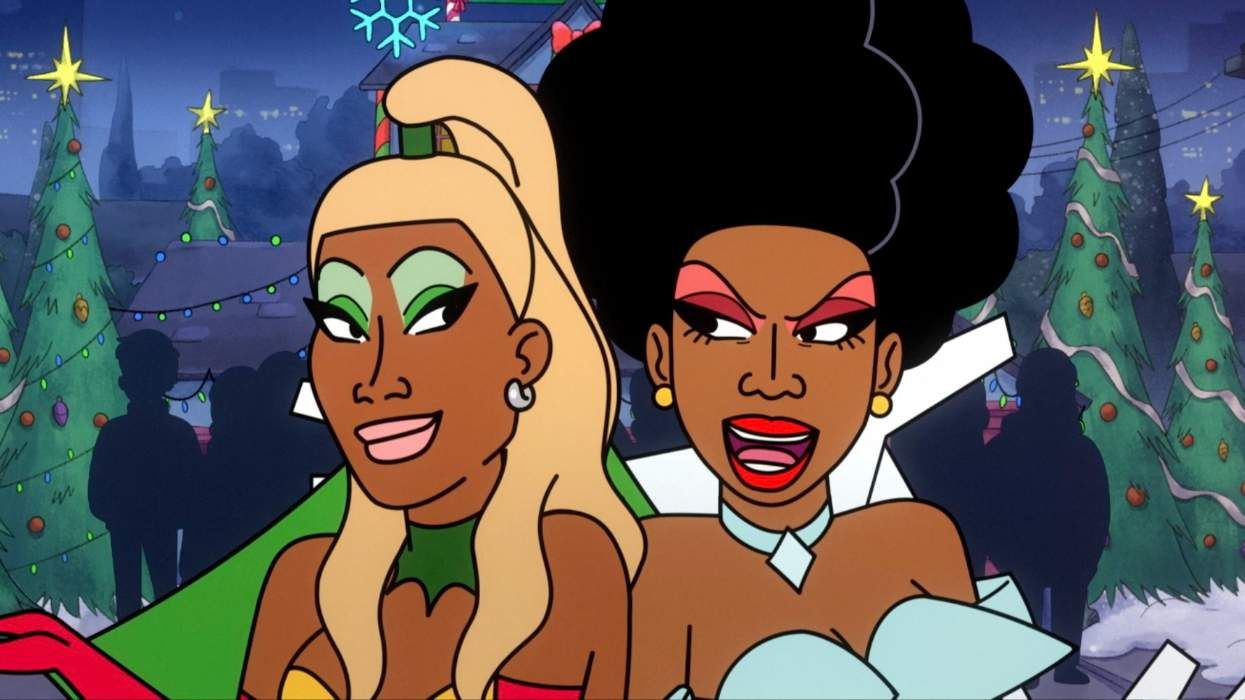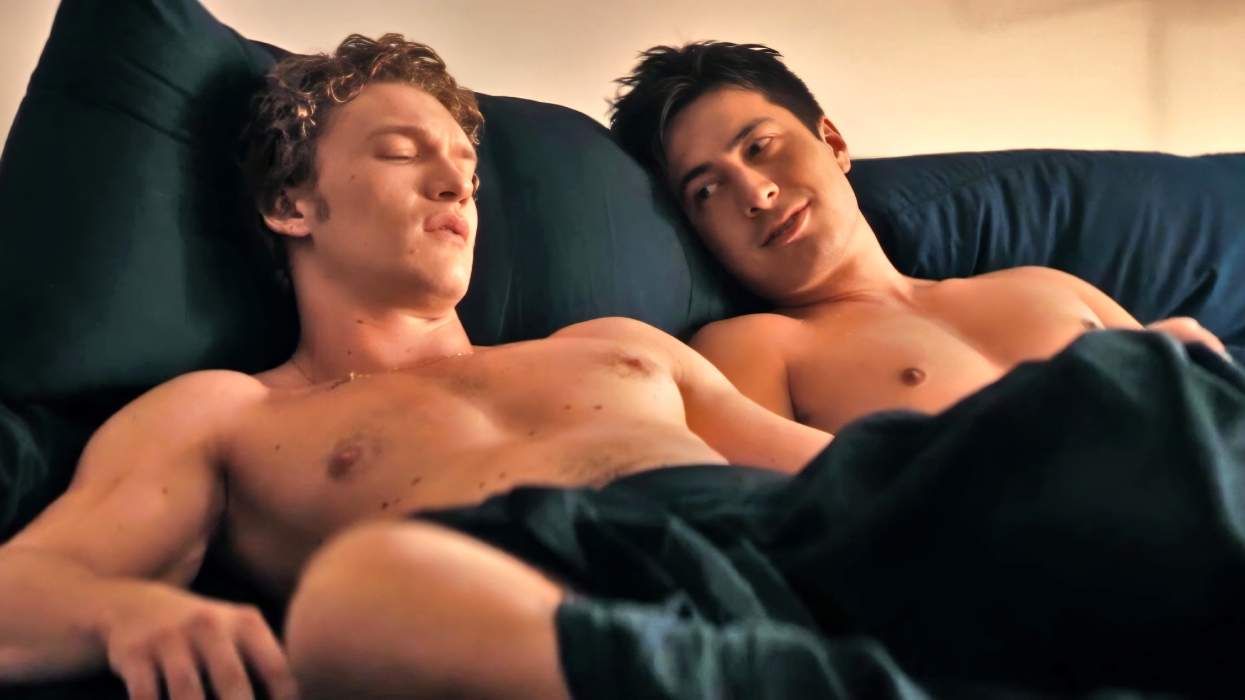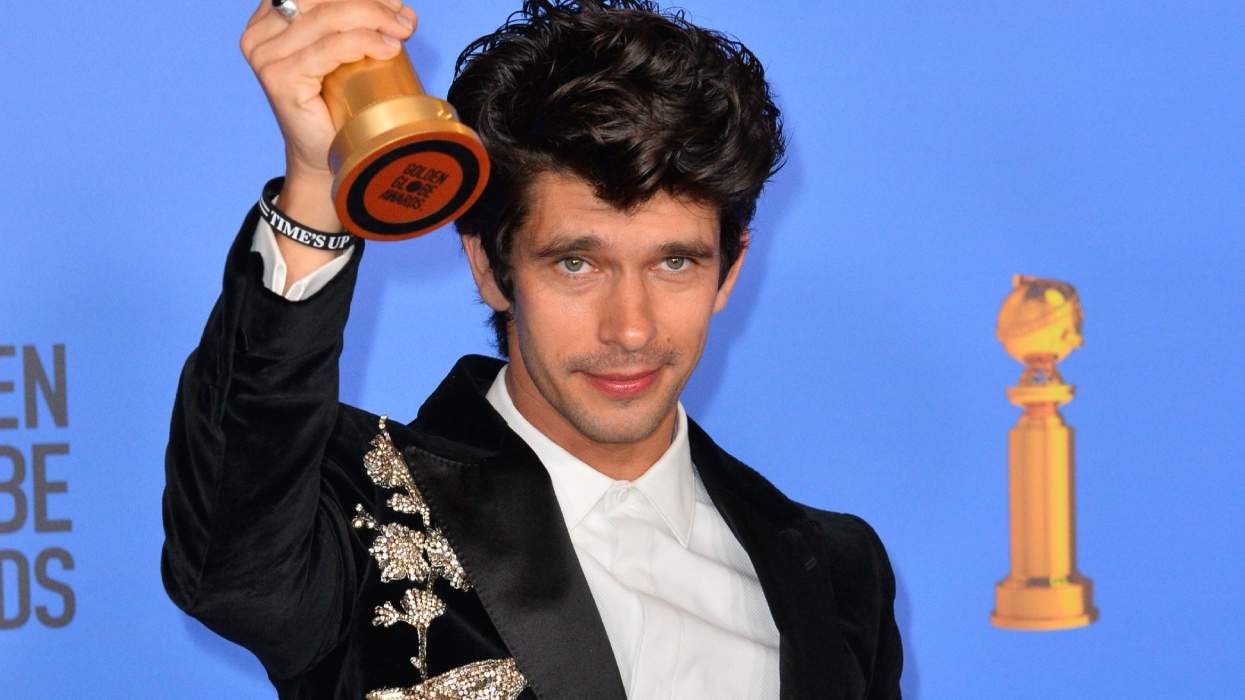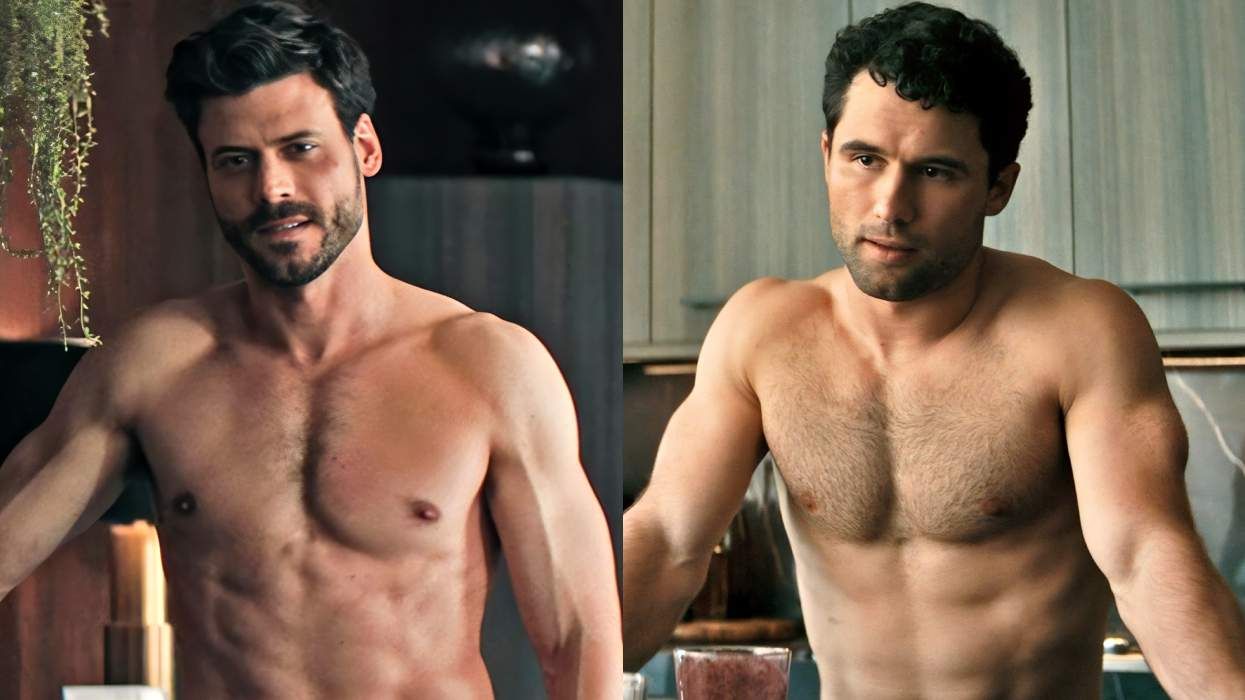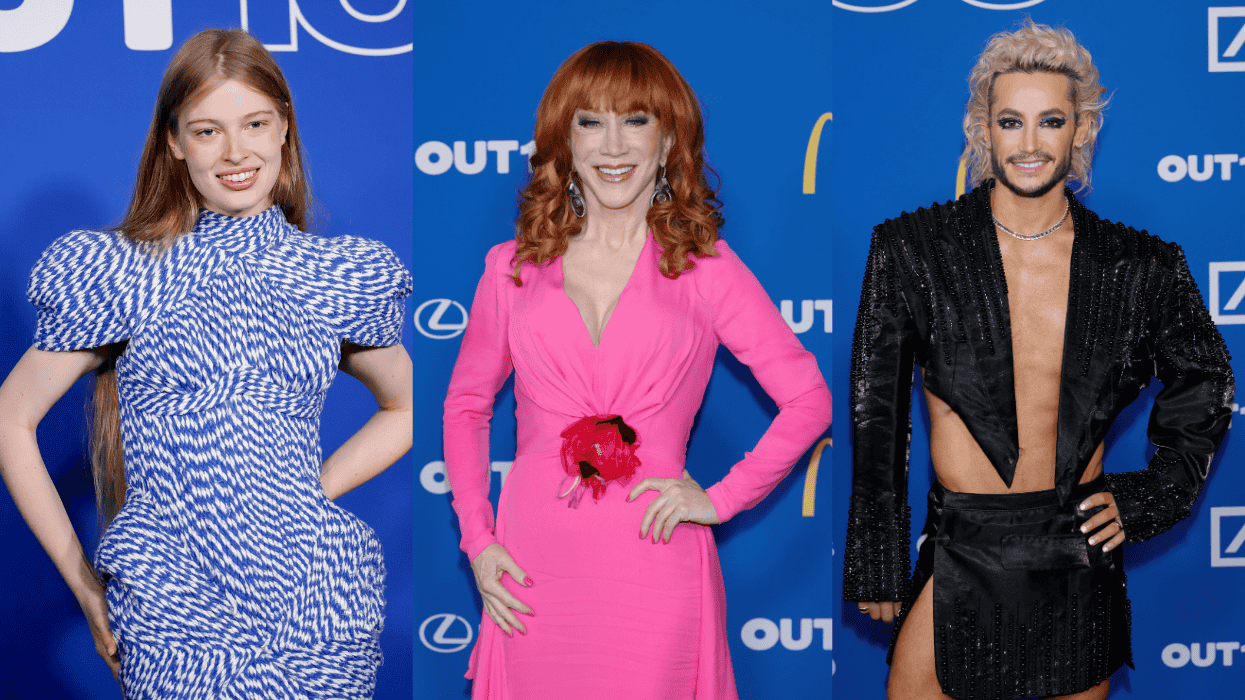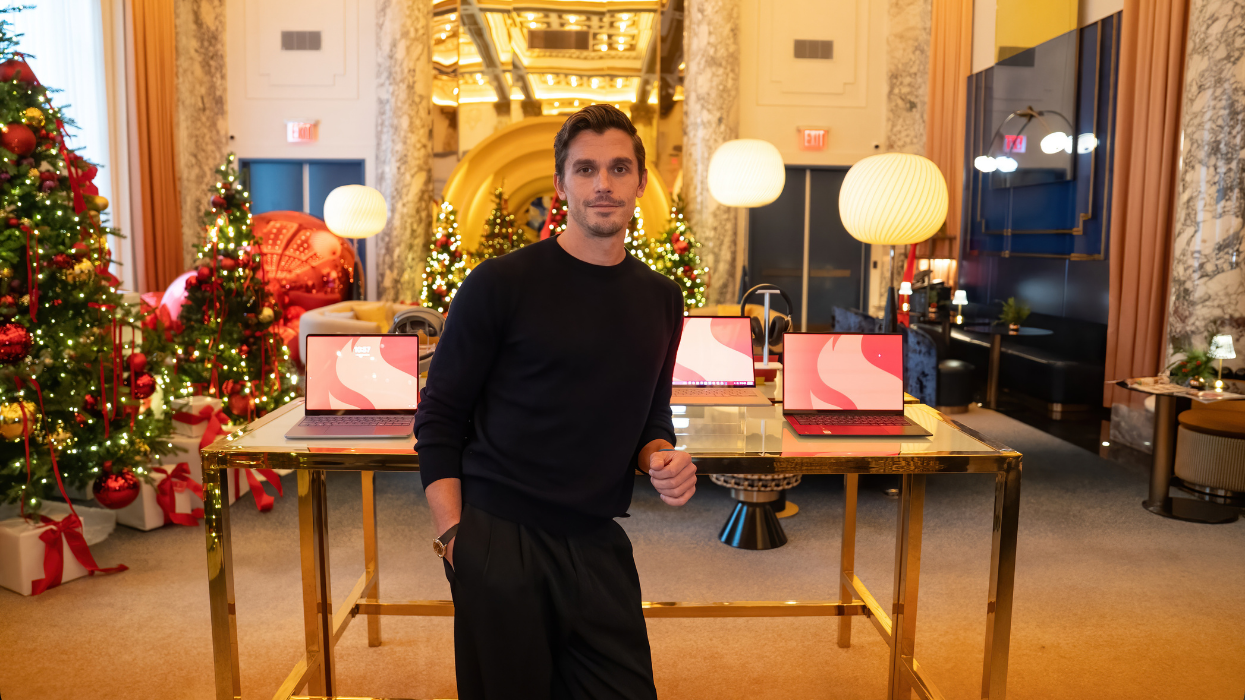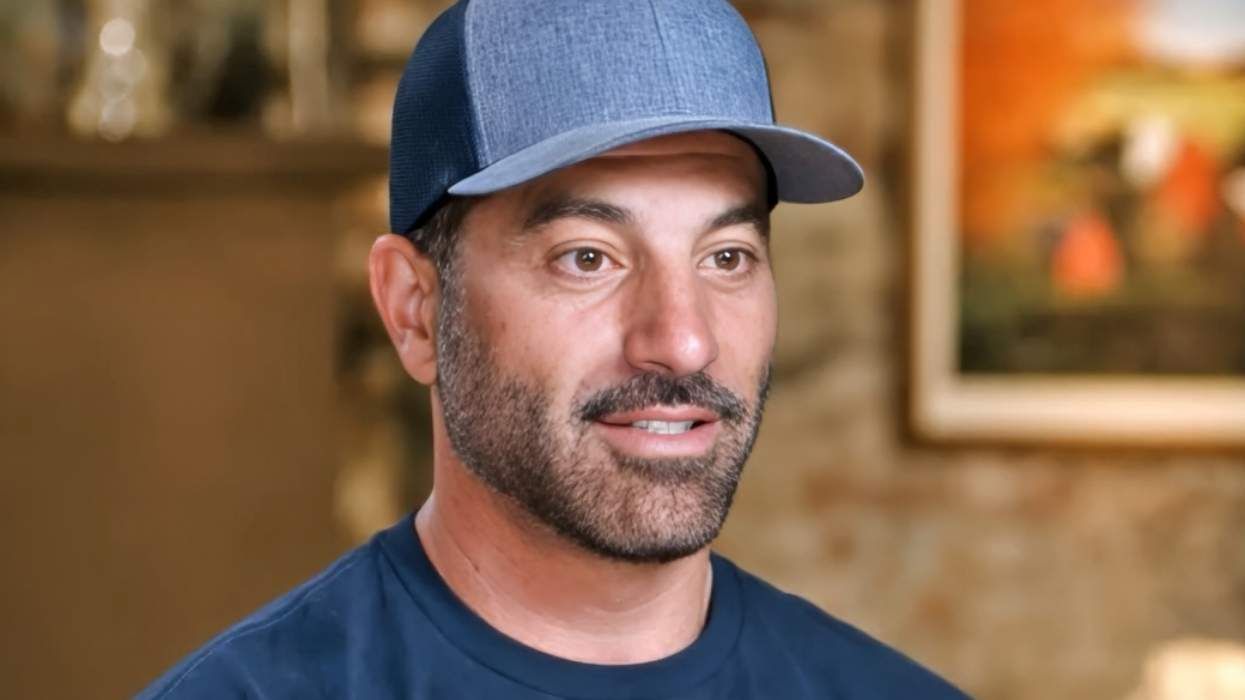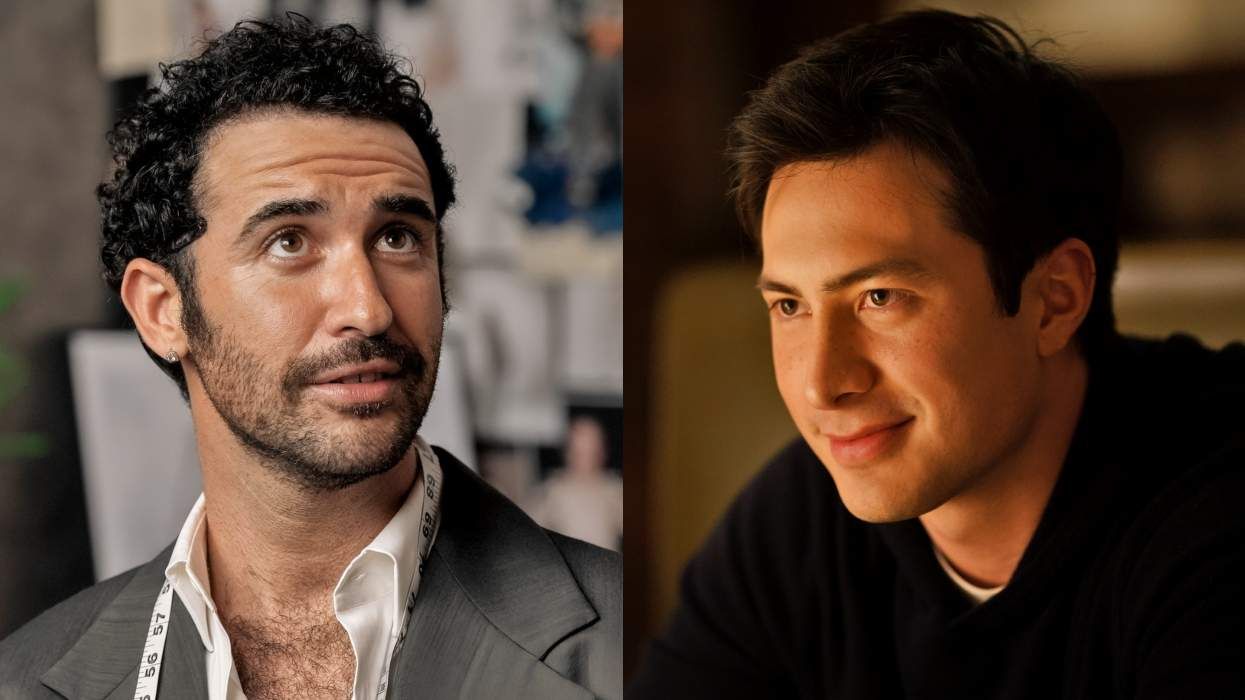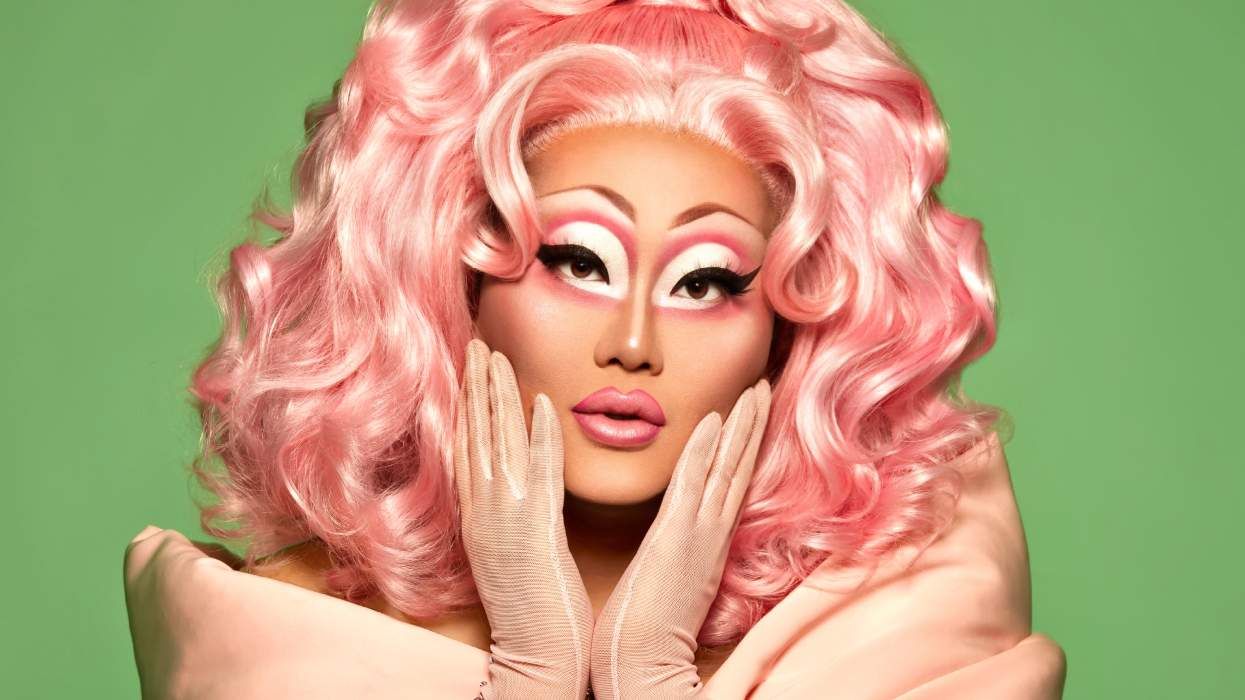Viewers who tune into the CBS show The Red Line not only get a searing drama from executive producers Ava Duvernay and Greg Berlanti, they also get a transmasculine character, Riley Hooper, played by transmasculine actor (imagine that!) JJ Hawkins.
Riley is best friends with the show's main character, Jira Calder-Brennan (Aliyah Royale). The story follows three families as they deal with the aftermath of the shooting of an unarmed Black man in Chicago. The man also happens to be Jira's father, Harrison. Now, Harrison's husband Daniel Calder and their daughter Jira are adjusting to life since Harrison's death. At Jira's side is her best friend, Riley. Out caught up with actor JJ Hawkins to talk about what it means to be a trans actor playing a trans role, growing up queer and Mormon, and how they knew the writers would do a good job with Riley.
So The Red Line premiered this past week. What was it like to see a series you had worked so much on make its premiere on a major network?
I mean obviously it was exciting first and foremost. It was pretty surreal. I got to go to one of the producers' houses to watch it and got to be with people who worked on it, with the rest of the cast and crew. It felt surreal in all the best ways.
Can you talk a little bit about auditioning for Riley? How did you hear about the part?
I first heard about it through my agent. I later found out that it was actually from a reference through GLAAD that got my name out there for the audition. I just got an email from my agent and I was like, "I can't believe I'm reading a breakdown for a character that is completely me! I can't wait to book this!" It was one of those like, "Wow, this is my role!" And then I went in for an in-person audition. I had never been to the building before, I didn't know where I was going, but I saw two other transmasculine people and it was like, "I'm in the right place!"
It was interesting how you just said that you identified with the role on paper and saw a character that reflected your own experience. As a transmasculine actor, what did that feel like?
Oh, it was honestly like, it was only warmth that spread through me was the best way to explain it. I've gotten quite a few auditions for trans characters and you can tell when the writers don't know what they're talking about. You see like, "This character is trans and she finds out she's a boy!" You can read how much they don't know what they're talking about. Even in this small breakdown, it was like, "Riley goes by they/them" and, "This is the kind of person Riley is, aside from their queerness." It was using correct pronouns and not using their transness as their defining character trait. I knew they saw Riley as a human and that they saw Riley as a person, as a human, who was trans.
One of the things I did love about Riley is that they and Jira have a great friendship that demonstrates allyship and friendship between people of different backgrounds. Do you and Aliyah Royale talk at all about how to bring that friendship to life on screen?
It helped that when Aliyah and I met, there was an immediate connection. It was effortless to act as friends because we became best friends in a matter of minutes, it felt. Jira and Riley are dealing with things a little bit different than either of us, and this incident is a lot heavier than anything we've experienced. But it was based on this actor-to-actor connection. I care so much about Aliyah, it was easy for me to see why Riley would care about Jira. And to see that her parents are an extension of Riley's own parents, as your best friends' parents usually are. It was honestly very easy. Aliyah is a wonderful person. And in real life, one of my closest friends.
Without giving things away, does Riley get a character arc over the season?
I mean, undoubtedly excited for people to see more of Riley. Being that this is the first season and this already has a lot of overlapping storylines, the writers were clear that this is not Riley's character development season, but it will certainly be incorporated in the next season, getting in their journey and their background. But the most important is in this season, their utility is to be Jira's best friend and the beautiful part about that is that Riley is trans. It's a matter of fact trans character, and it's wonderful that the story is about them being a best friend. I think it's profound that Riley is just existing in this world; it's true to nature. They're trans and everyone is acknowledging that but the spotlight isn't there right now.
I saw in your bio that you went to Brigham Young. Did you happen to see the video that went viral over the weekend about the valedictorian that came out in his speech? What was it like for you, personally, growing up queer and Mormon?
Right, that is obviously exceptionally relevant to my experience. I'm sure you can imagine how niche the community is at BYU, being queer and Mormon and all, let alone at BYU. That blew up all over my social media feeds, because it's very relevant. And yeah, obviously, it's difficult to summarize the complexity of growing up queer and Mormon. It's sufficient to say it was not easy whatsoever. I was there for a large part of that change. Only in 2008 were you allowed to come out as queer and not be immediately expelled, which is shockingly recent. And I started going there in 2011, so I only went there right after you were allowed to be out. I was part of the unofficial group, which was never made official. We did an "It Gets Better" video that went viral because of it. It was like these two completely opposing groups and these people who inhabit both sides of it. I'm excited that there is progress -- valedictorians, their speeches need to be approved. And that they were supported and felt safe and that this response is getting attention, because it should.
Like the show says, people get put into one box but it's exciting that the Mormon box is getting expanded. There are people who grew up and believe in this religion and not be one thing. One can be queer and grow up and have these conflicting feelings. Any representation of how complex our little community is is great. It was and still is exceptionally difficult. It's entirely difficult, my entire community. It's not easy. So I'm very impressed with him because I know what it's like.
RELATED | The Valedictorian at Anti-LGBTQ+ Mormon School Comes Out in Speech


